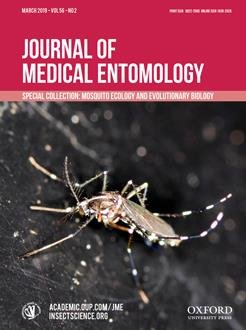Rhodnius prolixus Stål, a major Chagas disease vector, often colonizes in houses, whereas its sister species, Rhodnius robustus Larrousse genotype I, does not colonize in houses and has little medical relevance. Factors potentially underlying this crucial difference remain largely uncharted. The ‘microclimate-adaptation hypothesis' notes that R. prolixus is adapted to the dry microclimate of small-crowned Copernicia palms, whereas R. robustus I exploits the high-moisture microclimate of large-crowned Attalea and Acrocomia. Hence, R. prolixus, but not R. robustus I, would be (pre)adapted to the relatively dry microclimate typical of man-made habitats. This hypothesis predicts that, while severe dehydration should harm both species similarly, R. prolixus should withstand moderate-to-mild dehydration stress better than R. robustus I. To test this prediction, we compared fitness metrics of genotyped R. prolixus and R. robustus I kept at 28°C and under severe (20% relative humidity, RH), moderate (40% RH), or mild dehydration stress (75% RH). Egg-hatching success increased with decreasing dehydration stress in R. robustus I (0% → 19% → 100%), but was high across treatments in R. prolixus (78% → 100% → 100%). Both species underwent high, early mortality under severe dehydration; under moderate and mild stress, R. prolixus experienced less mortality and survived longer than R. robustus I. Our results suggest that adaptation to distinct palm-crown microclimates may partly underlie the so far unexplained differences in house-colonization ability among Rhodnius Stål species. Experimental replication across additional species/populations will be required to further probe this adaptive hypothesis—which, if supported, may also provide insight into the likely responses of Chagas disease vectors to climate change.
How to translate text using browser tools
10 April 2019
Dehydration-Stress Resistance in Two Sister, Cryptic Rhodnius Species—Rhodnius prolixus and Rhodnius robustus Genotype I (Hemiptera: Reduviidae)
Raíssa N. Brito,
Rita C. M. Souza,
Fernando Abad-Franch
ACCESS THE FULL ARTICLE
It is not available for individual sale.
This article is only available to subscribers.
It is not available for individual sale.
It is not available for individual sale.

Journal of Medical Entomology
Vol. 56 • No. 4
July 2019
Vol. 56 • No. 4
July 2019
Chagas disease
dehydration stress
microclimate adaptations
Triatominae




